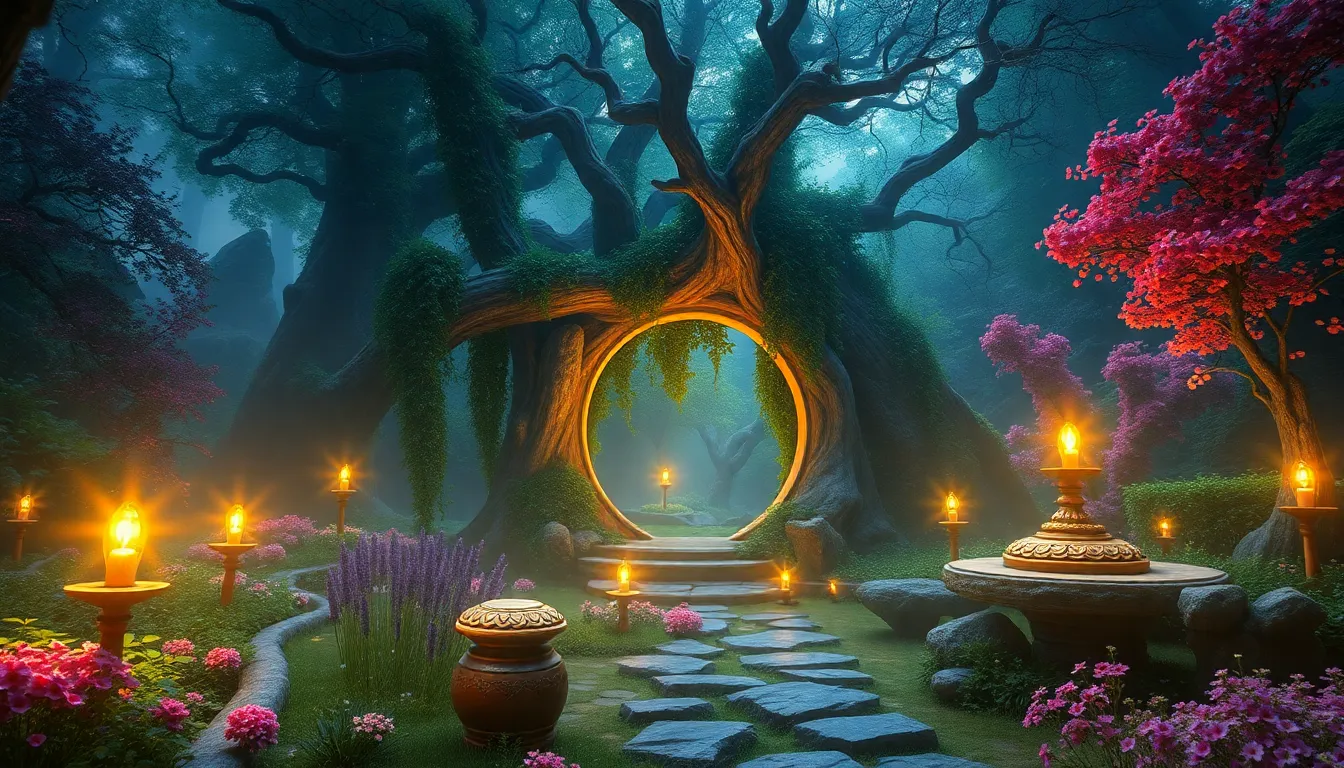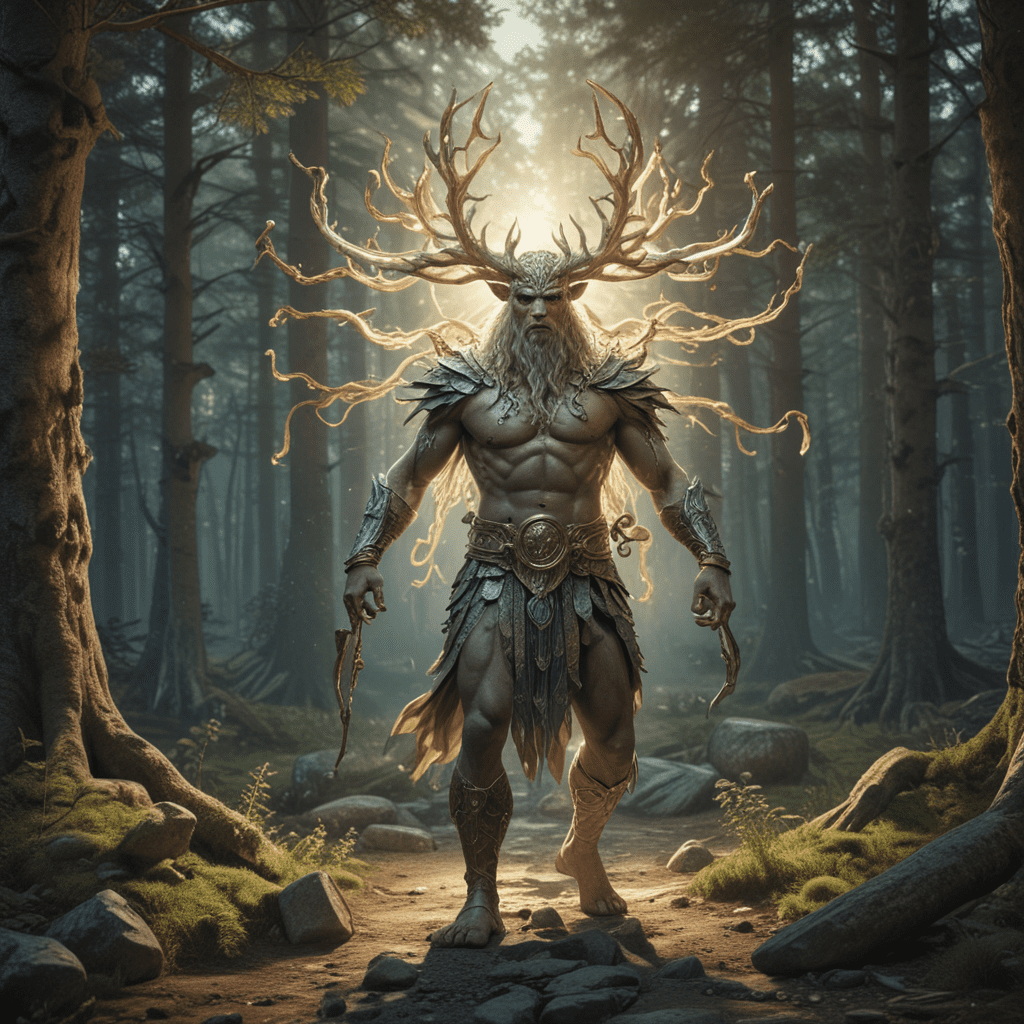The Mythical Garden: Creation Stories That Inspire Hope
1. Introduction to the Mythical Garden
A “Mythical Garden” refers to an imaginative space often depicted in various narratives that embodies elements of beauty, fertility, and the divine. These gardens are not merely physical spaces but represent a deeper connection between humanity and nature, often serving as backdrops for creation stories that shape cultural identities.
Creation stories across cultures often feature gardens as places where life begins, where the divine interacts with the earthly realm. These tales not only reflect the values and beliefs of a society but also illustrate the universal human quest for understanding our origins and purpose.
The symbolic significance of gardens in mythology is profound. They often symbolize growth, transformation, and the cyclical nature of life, making them ideal metaphors for hope and renewal.
2. The Role of Nature in Creation Myths
Nature plays a pivotal role in various creation myths, often depicted as a nurturing force that gives rise to life. In many cultures, creation stories highlight themes of fertility, growth, and renewal, linking the earth’s bounty with the divine.
- Fertility: Many myths emphasize the earth’s ability to sustain life, often personifying nature as a nurturing mother.
- Growth: The process of life emerging from the earth is frequently illustrated through the imagery of seeds sprouting into plants.
- Renewal: The cyclical patterns of seasons reflect themes of death and rebirth, reinforcing the idea that life is a continuous cycle.
In this context, the garden emerges as a powerful metaphor for life and rebirth, a sacred space where the boundaries between the earthly and the divine blur.
3. Ancient Civilizations and Their Gardens
Throughout history, ancient civilizations have created gardens that not only served practical purposes but also held deep spiritual significance.
- Mesopotamian Gardens: The Hanging Gardens of Babylon, one of the Seven Wonders of the Ancient World, were reputed to be a marvel of engineering and beauty, symbolizing the ingenuity and aspirations of the Babylonian civilization.
- Egyptian Gardens: Gardens in ancient Egypt were often associated with the afterlife, filled with fruit trees and flowers, serving as a reflection of paradise.
- Greek and Roman Mythology: The Garden of the Hesperides, a mythical garden where golden apples grew, symbolizes the eternal youth and the divine rewards of life lived well.
4. Eastern Perspectives on the Mythical Garden
Eastern traditions also offer rich narratives surrounding mythical gardens, each reflecting unique cultural beliefs and values.
- The Garden of Eden: In Judeo-Christian tradition, the Garden of Eden symbolizes innocence and the ideal state of humanity before the fall.
- Lotus Gardens: In Hindu and Buddhist narratives, the lotus flower represents purity and enlightenment, often found in sacred gardens that symbolize spiritual awakening.
- Peach Blossom Spring: In Chinese mythology, this idyllic garden represents a utopian society, a place of peace and harmony untouched by the outside world.
5. Indigenous Narratives and the Sacred Garden
Indigenous cultures around the world have their own creation stories that highlight the importance of gardens as sacred spaces.
- Native American Cultures: Many Native American myths speak of the earth as a living entity, with gardens serving as sacred sites for rituals and community gatherings.
- African Mythology: Sacred gardens in African narratives often symbolize the connection between the living and the ancestors, serving as places of healing and community.
- Resilience and Community: Indigenous gardens reflect the resilience of communities, often serving as symbols of survival, identity, and continuity.
6. The Garden as a Place of Transformation
The mythical garden often serves as a powerful symbol of personal growth and transformation.
- Healing Through Nature: Many people find solace and healing in gardens, where the act of nurturing plants can lead to personal growth.
- Literary and Folklore Transformations: Stories like that of Persephone illustrate how gardens symbolize the cycle of life, death, and rebirth, with her descent into the underworld marking the change of seasons.
These narratives remind us of the transformative power of nature, encouraging us to embrace change and renewal.
7. The Influence of the Mythical Garden on Modern Culture
In recent years, there has been a resurgence of interest in gardening and holistic practices, reflecting the enduring influence of mythical gardens.
- Contemporary Gardening: More people are turning to gardening as a way to reconnect with nature and nurture their mental health.
- Art and Literature: Many contemporary artists and writers draw inspiration from mythical gardens, incorporating their themes into modern works.
- Sustainability Movements: The stories and symbolism of mythical gardens are inspiring modern sustainability efforts, emphasizing the need to protect our natural environment.
8. Hope and Resilience: Lessons from the Mythical Garden
The connection between creation myths and personal hope is profound, as gardens symbolize perseverance and resilience in tough times.
- Symbol of Perseverance: Just as gardens require care and nurturing to flourish, so too do our personal journeys through adversity.
- Community Resilience: The act of storytelling and sharing experiences in gardens fosters community bonds and resilience.
9. Creating Your Own Mythical Garden
Creating a personal mythical garden can be a fulfilling endeavor that allows individuals to connect with nature and mythology.
- Practical Tips:
- Choose a space that resonates with you, whether it be a backyard, balcony, or community space.
- Select plants and flowers that have personal significance or hold mythological meanings.
- Incorporate Mythology: Use elements from your favorite myths, such as statues, stones, or decorative features, to create an immersive experience.
- Building Community: Consider starting a community garden to share stories, experiences, and inspiration with others.
10. Conclusion: The Enduring Power of Creation Stories
The importance of the mythical garden in various cultures cannot be overstated. These stories continue to inspire hope, resilience, and a deeper connection to nature.
As we reflect on these narratives, let us be encouraged to explore and create personal connections with nature and mythology, nurturing our own gardens of hope and transformation.


